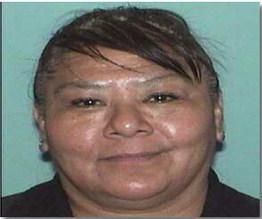Diego Lopez, Reporter
In a continued effort to combat the crisis of missing or murdered Indigenous persons (MMIP), the United States Department of Justice has taken significant steps to address unresolved cases, including that of Mona Renee Vallo. These initiatives are in response to the Not Invisible Act of 2019, a groundbreaking piece of legislation spearheaded by then-Congresswoman Deb Haaland, who is now the Secretary of the Department of the Interior. Haaland has a special connection to Cibola County, being a daughter of Laguna Pueblo.
On March 2022, Mona Renee Vallo, a member of the Confederated Tribes and Bands of the Yakama Nation, tragically lost her life in a hitand- run accident near U.S. Route 66 and New Mexico Highway 124. Authorities have been working to identify the driver and the vehicle involved in the incident, but the case has remained unsolved, leaving Vallo's family and community searching for answers.
However, there is renewed hope for justice in Vallo's case, thanks to the Department of Justice's efforts to addressing MMIP cases. One of the key outcomes of the Not Invisible Act was the establishment of the Not Invisible Act Commission, an advisory committee composed of law enforcement officials, Tribal leaders, federal partners, service providers, family members of missing and murdered individuals, and Continued form A1
survivors.
The Commission was tasked with developing recommendations to address the public safety challenges identified in the Act, including those related to MMIP cases. Among their recommendations were strategies to identify, report, and respond to instances of missing and murdered Indigenous peoples, as well as tracking and reporting data on these cases.
On May 5, 2022, Secretary Haaland announced the full membership of the Commission, emphasizing the federal government's commitment to working with Tribal nations to address the crisis of missing or murdered Indigenous people. Deputy Attorney General Lisa Monaco reaffirmed the Department of Justice's eagerness to support and learn from the Commission's work.
The Commission held its first plenary meeting on June 14-15, 2022, during which they organized a series of field hearings to gather crucial information and insights. These efforts reflect the dedication of both federal and non-federal members to bring justice to affected communities.
The Commission submitted its recommendations to the Departments of Justice and the Interior and to Congress on November 1, 2023. As required by the Act, the Department of Justice is set to release its response to these recommendations by January 30, this coming Tuesday, outlining the actions it will take to address the crisis effectively. In the case of Mona Renee Vallo, the increased focus on MMIP cases and the collaborative efforts of federal, Tribal, local, and state law enforcement agencies, as well as nongovernmental partners, offer renewed hope for finding answers and achieving justice.

